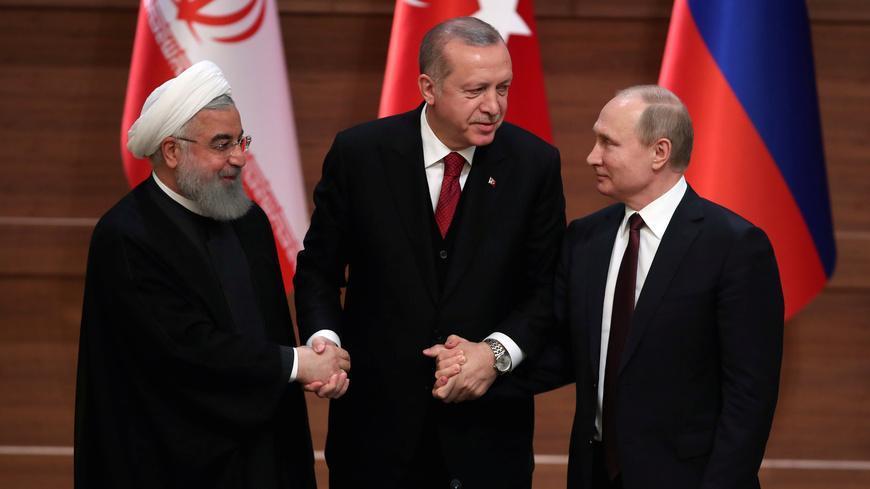Turkey, Russia, Iran meet for key Idlib summit in Tehran
ANKARA

The presidents of Turkey, Russia and Iran will come together for a key summit in Tehran on Sept. 7 in a bid to discuss Syria’s Idlib province as the Syrian army prepares a large-scale military offensive into the last rebel-held stronghold despite the international community’s concerns that it can lead to a humanitarian catastrophe.
Iranian President Hassan Rouhani will host President Recep Tayyip Erdoğan and Russian President Vladimir Putin in their third summit within the Astana Process, which they say seeks to bring an end to the violence in the seven-year civil war.
“At the summit, joint efforts as part of the Astana Process and a political settlement process will be discussed for a permanent solution to the Syrian conflict,” read a statement issued by the Turkish Presidency on Sept. 6.
The leaders will also hold bilateral talks on the sidelines of the summit, while the countries’ foreign ministers will come together separately ahead of the leaders’ summit. A joint communique is expected to be released following a joint press conference by the presidents after the meetings.
Idlib is expected to dominate the agenda at the leaders’ meeting, as the Syrian government has said it aims to recapture the last opposition-held enclave, dominated by an array of jihadist organizations and home to 3.5 million people.
The Syrian army, with aerial support from Russia and ground backing from Iran, has intensified its military moves and increased its troop deployment to capture the western province of Idlib from armed rebel groups. The U.N. has said there are 10,000 terrorists linked to al-Qaeda in Idlib.
Turkey says an operation that fails to separate terrorists from civilians could lead to a civilian massacre and a huge refugee influx toward its border. Ankara has proposed to conduct joint intelligence works to identify members of the terrorist groups and eliminate them without causing civilian casualties.
Turkey suggests joint work
“If the question here is about the presence of radical terrorist organizations, then we should build a joint strategy against these groups,” Foreign Minister Mevlüt Çavuşoğlu told reporters at a joint press conference with visiting German Foreign Minister Heiko Maas late Sept. 5.
Çavuşoğlu suggested that a joint work could be carried out for the elimination of what he called radical groups. “But this can’t be solved by bombing without separating [radicals from civilians].”
Turkey condemns Russian air strikes
As Turkish and Russian intelligence and military officials held intensive talks in Ankara over Idlib, Russia carried out consecutive air strikes on the western parts of the province and the Syrian army shelled its southern parts.
Turkey condemned Russia’s air strikes ahead of the tripartite summit.
“After the attack, our institutions [Turkish and Russian] contacted each other. We told them that this is wrong,” Çavuşoğlu said. “We, particularly disagree over carrying out such attacks ahead of the Tehran summit. If the intention is to create pressure through these attacks, that is also wrong.”
“[The] regime’s desire to attack and capture Idlib is clear,” he added, noting that all the radical groups were brought to Idlib with their weapons from Aleppo, Eastern Ghouta and Homs.
“The plan was clear from the start. These groups would go there and then the [Assad] regime would attack [Idlib] to capture it,” Çavuşoğlu stated.
There are 3.5 million people in Idlib and the operation can trigger another influx toward the Turkish border, the minister stressed.
“How many of them will come to Turkey? Maybe two million? Maybe more. Where will these terrorists go? They might come to Turkey or go back to their own countries,” Çavuşoğlu said. “Foreign terrorist fighters can also go to other countries, to Europe or even beyond.”
















